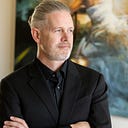Divinity consultants?
Ritual is anything but routine, despite what The New York Times tells you.
It’s easy to blur the line between routine and ritual. Which category is it, for example, to have a habit of taking a shower and staring at the ceiling for five minutes after accomplishing my day’s main task? Does the label matter, if the action feels essential?
To be technical, though, Kathleen McTigue, a Unitarian Universalist minister and a mentor to Mr. ter Kuile, offers a definition. She describes rituals as elevated routines, with set intention, attention and repetition.
There’s a lot to like about this article. It highlights a basic human impulse — to make meaning in all areas of our lives. It puts a spotlight on efforts to bring meaning-making into workplaces previously forsaken as “soulless.” It introduces the New York Times readership to the existence of Divinity schools, whose graduates exert significant influence on our culture and not just in discrete religious communities.
There’s also a lot about it that highlights basic deficiencies in our general understanding of “ritual,” which is probably rooted in or at least a complement to our general discomfort in talking about religion and spirituality with anyone outside our tight circles of trusted confidants. Religion, like politics, is treated as a topic so controversial that it is forbidden at already-emotionally-fraught convenings like Thanksgiving.
I get it — when I traveled during my Div school years, I’d often have a book or two with me that would catch the (unwanted) attention of my seat neighbors on airplanes or trains and somehow provoke a waterfall of (unsolicited) opinions about the wonders/dangers of religion or about that person’s transformative/traumatizing experience of it. And let me tell ya, when people start down that line of conversation, they just don’t stop. Occasionally, instead of pouring their sacred histories onto me, folks would use it as an opening to interrogate me. “Are you,” I’ve been asked many times through a tone of incredulity, “…religious?”
When I taught world religions at the high school level, one of my objectives was to prepare my students for those very conversations. On one hand, I hoped they’d be able to articulate their own relationship to religious practice without feeling defensive or preachy, but on the other, I hoped students would go into the world utterly uninterested in putting religious folks on trial. Particularly while they are trapped during takeoff on their flights to Chicago.
It’s actually not that easy to blur the line between routine and ritual…if one has a clear understanding of “ritual.” The article cites a definition offered by a Unitarian Universalist minister, that rituals are “elevated routines, with set intention, attention and repetition.” The key to that definition — the key that was totally missed by the article’s author — is intention. Rituals are designed with particular intent, and in addition to that primary objective, through rituals, people make space for people to discern insights into themselves, into others, or into life in general, to communicate and understand ideas and values, and to facilitate some kind of change. Rituals are made up of discrete components, practices that are typically rooted in things we do every day, but, juxtaposed within a ritual, we are able to see those very ordinary actions differently. The ordinary becomes extraordinary. No magic or supernatural powers or presence is required — the power lies in human agency. When the ritual is done, people choose to take what they experienced into the rest of their lives or to leave it behind.
That doesn’t mean that discrete practices outside the context of ritual aren’t meaningful. One doesn’t need a ritual to make meaning — it’s one of many contexts in which we construct our understanding of and relationship to others and to the world. A workplace can be such a context — we can discern and communicate values, clarify our individual and collective purpose, establish space and time separate from the normal flow to engage in contemplation or prayer, and clarify our purpose, articular existential insights through one’s work and collegial relationships. The challenge is — and here’s the real story that the headline misses — that people aren’t trained in making meaning in their lives. The work of ritualists like those interviewed in the article (and like me) isn’t bound within the confines of religious temples, but neither is our work purely aimed at integrating religious practices into non-religious spaces. The call we all seem to be responding to is to bring some of the vocabulary, both words and actions, that we took from Divinity school into contexts where people are hungry for meaning. Particularly now, as we stand at the beginning of a profound cultural shift (in what direction? Still TBD), we are fluent in a language that others are eager to learn.
Visit billhulseman.com to learn more about my approach to ritual construction.
Bowles, Nellie. (2020) ‘The Office Is Adrift. Divinity Consultants Are Here to Save It.’ The New York Times. August 28, 2020. Available at https://www.nytimes.com/2020/08/28/business/remote-work-spiritual-consultants.html?action=click&module=Editors%20Picks&pgtype=Homepage. Accessed August 28, 2020.
